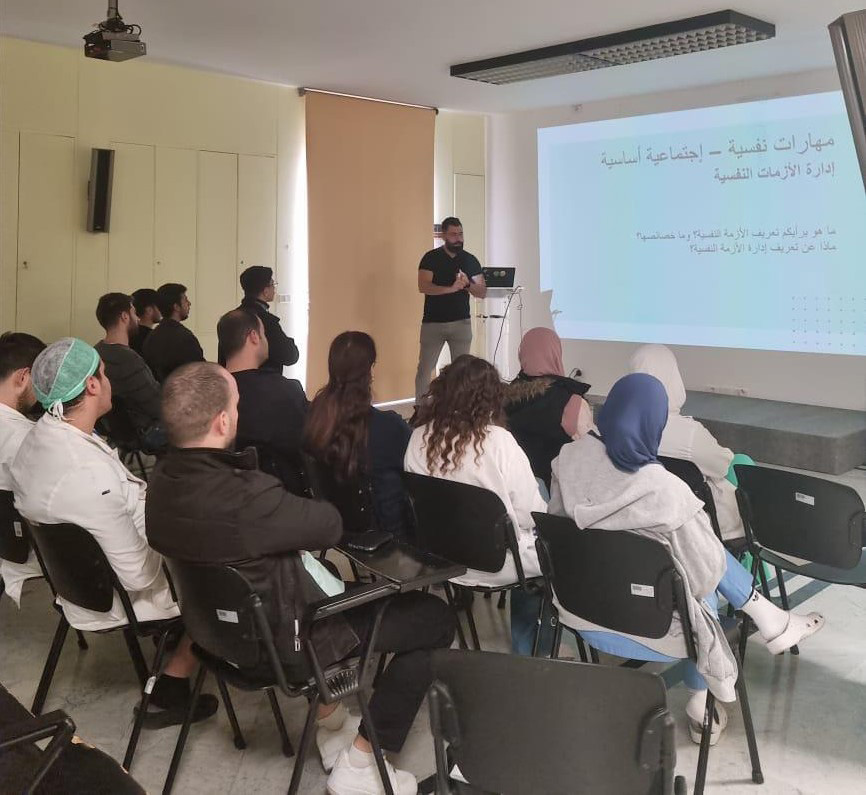
4 June 2024 – In emergency contexts, almost all people affected will experience some sort of psychological distress. Most of them will improve over time. But people with severe mental disorders are especially vulnerable in emergency settings.
They must have support to access mental health care and meet other basic needs in such contexts.
For effective emergency preparedness and response, mental health and psychosocial support (MHPSS) should be integrated with the health response, across the levels of care – from basic services to clinical care. This is in line with evidence and international guidelines.
Given the conflict in the occupied Palestinian territory, and the escalation of hostilities at Lebanon’s southern border, WHO and Lebanon’s Ministry of Public Health have integrated MHPSS interventions into the emergency preparedness and response plan.
To build capacity, a module on mental health was integrated with WHO’s support for hospitals’ readiness for mass casualty management. The training was given to health professionals in emergency rooms and intensive care units. It covered pharmacological management of psychiatric emergencies for doctors, and basic psychosocial skills, with a focus on de-escalation techniques, for nurses.
WHO directly supported the training of 1885 health professionals: 160 doctors trained across 58 hospitals, and 1725 nurses across 108 hospitals.
The doctors’ training aimed to increase knowledge on pharmacological assessment and management of psychiatric emergencies such as suicide attempts, altered mental status, seizures and panic attacks. The training for nurses aimed to build their capacity on mental health and give them skills to better intervene in emotional crises. It also gave the nurses self-care techniques to look after their own mental health.
In addition, a series of psychological first aid (PFA) trainings coordinated by the National Mental Health Programme set out to build the capacity of more than 1000 frontline health workers. PFA offers first-line emotional and practical support to people experiencing acute distress due to a recent event.
Key mental health messaging was also developed and communicated across the media, targeting both the public and health providers. Messages focused on issues like how to cope with stress, how to cater for vulnerable groups such as children and pregnant women, and typical reactions to traumatic events. WHO partners were encouraged to communicate these messages through their own networks.
Despite their tragic nature, emergencies and crises can be opportunities to build back better mental health systems.


